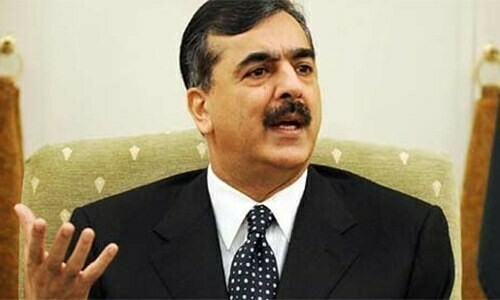SAHIWAL: A scholar at a two-day conference highlighted the fact that our archaeological evidence found in Mehrgarh, Mohenjodaro and Harappa civilisations suggests that the cultural heritage goes back to 11,000 years and not just hundreds of years when the Arabs or the British arrived.
“The existing languages and cultural roots of Pakistan link back to these great civilisations. It is time all such sites were ‘saved’ in times of hegemony of economic and cultural globalisation,” said Dr Shah Muhammad Marri, an academic at the University of Balochistan, Quetta, in his keynote address at the Sahiwal Literary and Cultural Conference.
The Sahiwal Arts Council (SAC) in collaboration with the Arid University’s local campus organised the conference on ‘Urdu Literature, Pakistani Cultures and Globalization’ which concluded on Tuesday. Hundreds of students from various educational institutions attended the last day of the event.
Conference stresses our cultural heritage goes way before arrival of Arabs
Dr Marri said it’s the duty of our academicians, linguistic researchers and policy makers to frame policies in line with the new paradigm of globalisation. “Making linguistic and cultural policy of Pakistan is the prime job of the provincial governments after the passage of the 18th Amendment and this must be done at the earliest,” he said.
“It’s also our duty to properly educate our younger generations to understand the challenges and contradictions of globalisation. This can be done by feeling proud of indigenous cultures,” said Dr Marri.
SAC Director Dr Riaz Hamdani said 55 language scholars and academicians from all over Pakistan spoke at more than six sessions after inauguration by Commissioner Arif Anwar. Dr Shah Muhammad Marri and Dr Nasir Abbas Nayar, Director General, Urdu Science Board, Lahore delivered keynote addresses.
Dr Najeeb Jamal, Dr Sajid Saleem, Dr Ashraf Kamal, Ms Uzma Saleem, Dr Fazal Haq Noori, Dr Tahir Iqbal, Ms Beena Govind, Dr Fakharul Haq, Dr Muzammil, Dr Iftikhar Shafi, Ms Saman Rai, Dr Ravish Nadeem, Dr Anwaar Ahmed and Dr Qazi Abid also enlightened the audience with their knowledge.
Dr Nasir said, “globalisation is not a complete system that has to be implemented once but it’s a process and this process is decoding and unfolding itself continuously both at economic and cultural levels.” Pakistan, he said, was highly vulnerable to globalisation’s economic and cultural effects because of colonial legacy.
He said architects of globalisation were framing policies to bring new consumers by undermining our own “products” and “heritage in language, art, poetry, music and performing arts.” “Globalisation is converting indigenous culture into commodity and this has to be resisted by our generations and the state at policy level,” he said.
Dr Marri stressed that language and cultures are not commodities but they are qualitative aspects of any civilisation and their roots are laid in soils from centuries. He said Pakistan’s ruling establishments tend to confuse “the state language with the national language.”
He said in Pakistan linguistics says that 74 languages are spoken in different regions and all these languages are not kharji (outsider) but are making internal linguistic diversity. He said declaring the Punjabi, Sindhi, Balochi, Pashto and Brahvi regional languages was unjust.
“All these languages and cultures are part of Pakistan and symbol of solidarity and by keeping that solidarity intact we can compete with cultural invasion of globalisation which is byproduct of economic globalisation,” he said.
A painting exhibition of the late Tariq Mirza, a Unesco award winner, at Syed Mustafa Zaidi Art Gallery, a session with poet Anwar Masood and Munni Begum’s performance were part of the conference. The delegates also visited Harappa Museum and enjoyed a Ravi Jhoomer dance performance.
Published in Dawn, November 28th, 2018













































Dear visitor, the comments section is undergoing an overhaul and will return soon.